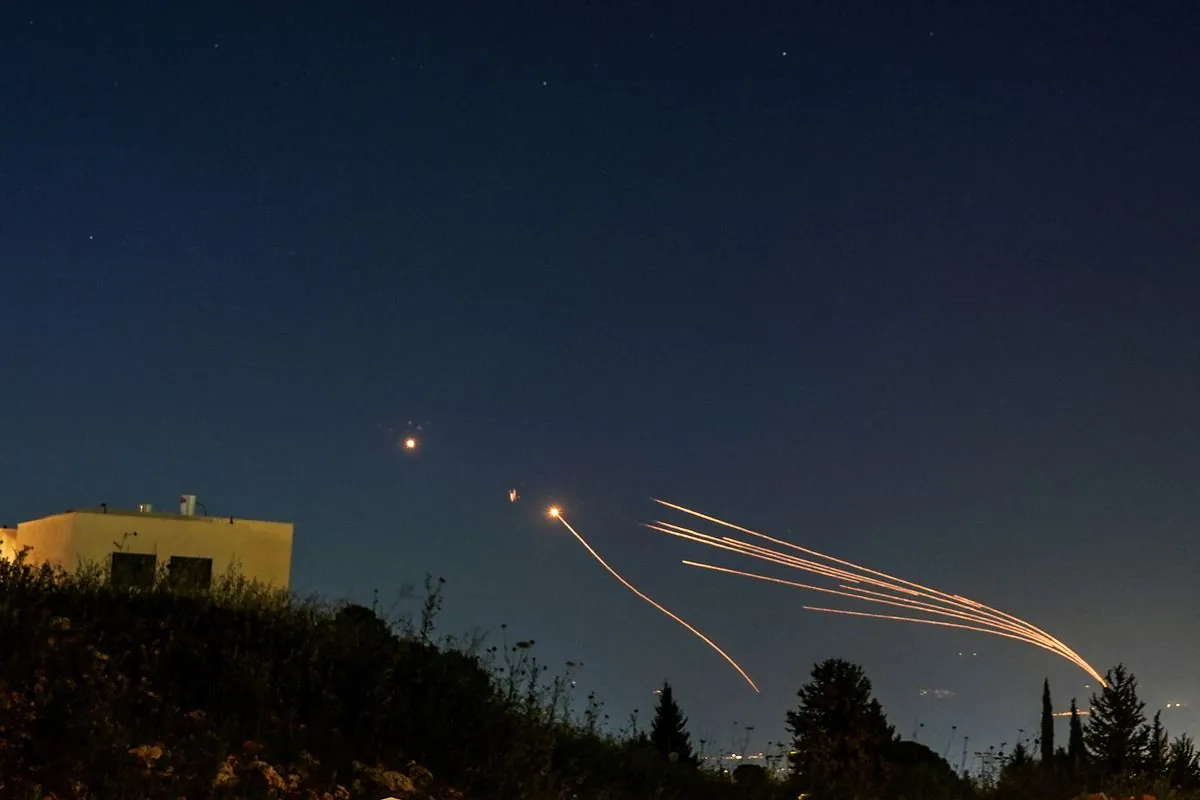Hezbollah Strikes Israel in Retaliation, Sparking Regional Tensions
Hezbollah launched a massive attack on Israel, prompting swift retaliation. The exchange resulted in damage to Israeli infrastructure and one military casualty, raising concerns about escalating conflict in the region.

In a significant escalation of tensions, Hezbollah launched a substantial attack on Israel, firing approximately 300 drones and rockets from Lebanon. This assault, occurring on August 25, 2024, was in retaliation for the Israeli assassination of a senior Hezbollah commander in Beirut the previous month.
The attack caused widespread damage across northern Israel, with one of the most notable incidents being the destruction of a chicken farm. A farmer was observed clearing debris from the coop, which had been struck by a rocket. This incident highlights the indiscriminate nature of such attacks and their impact on civilian infrastructure.
Hassan Nasrallah, the leader of Hezbollah, claimed that the primary target was Glilot, described as Israel's main military intelligence base near Tel Aviv. However, Israeli officials refuted this assertion, stating that no military bases were impacted.
Tragically, the attack resulted in one fatality. David Moshe Ben Shitrit, a 21-year-old Israeli soldier, lost his life aboard a naval patrol boat off Israel's northern coast. The circumstances of his death are under investigation, with initial reports suggesting he may have been killed by shrapnel or a misfired Iron Dome interceptor missile.

The Israeli Defense Forces (IDF) responded with a preemptive strike on Lebanon, targeting rocket launchers and what they described as a "terrorist cell" in southern Lebanon. The IDF reported that 100 fighter jets were involved in the operation, striking thousands of rocket launchers aimed at central and northern Israel.
Daniel Hagari, an IDF spokesman, provided a different assessment of the attack, stating that Hezbollah had fired 230 rockets and 20 drones, significantly lower than the initial reports. He also emphasized that 90% of the targets were short-range rocket launchers aimed at northern Israel.
The conflict led to the temporary closure of Tel Aviv's Ben Gurion airport and Beirut's airport, disrupting international travel. Tel Aviv municipality also announced the closure of beaches and cultural institutions, opening 240 public shelters throughout the city.
Benjamin Netanyahu, Israel's Prime Minister, instructed the IDF to "act proactively to remove the threat" from Hezbollah. He later stated that Sunday's strikes in Lebanon were "not the final word" in Israel's military campaign against the group.
"President Biden is closely monitoring events in Israel and Lebanon. He has been engaged with his national security team throughout the evening."
The international community has expressed concern over the escalating situation. The United States reaffirmed its support for Israel's right to self-defense, with President Biden directing officials to maintain continuous communication with Israel.
As tensions continue to simmer, diplomatic efforts are ongoing. An Israeli delegation returned from Cairo on August 25, 2024, after another round of indirect ceasefire talks with Hamas, another militant group in the region. However, Osama Hamdan, a Hamas official, stated that the group had rejected the latest demands put forward by Israel.
The situation remains volatile, with both sides on high alert. The recent events have reignited concerns about the potential for a wider conflict in the Middle East, highlighting the fragile nature of peace in the region.


































